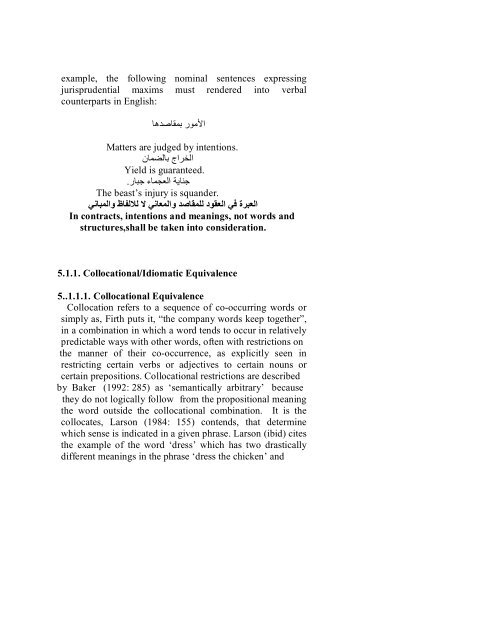424_2061_A.B.
424_2061_A.B.
424_2061_A.B.
- No tags were found...
You also want an ePaper? Increase the reach of your titles
YUMPU automatically turns print PDFs into web optimized ePapers that Google loves.
example, the following nominal sentences expressingjurisprudential maxims must rendered into verbalcounterparts in English:Matters are judged by intentions.Yield is guaranteed..The beast’s injury is squander.In contracts, intentions and meanings, not words andstructures,shall be taken into consideration.5.1.1. Collocational/Idiomatic Equivalence5..1.1.1. Collocational EquivalenceCollocation refers to a sequence of co-occurring words orsimply as, Firth puts it, “the company words keep together”,in a combination in which a word tends to occur in relativelypredictable ways with other words, often with restrictions onthe manner of their co-occurrence, as explicitly seen inrestricting certain verbs or adjectives to certain nouns orcertain prepositions. Collocational restrictions are describedby Baker (1992: 285) as ‘semantically arbitrary’ becausethey do not logically follow from the propositional meaningthe word outside the collocational combination. It is thecollocates, Larson (1984: 155) contends, that determinewhich sense is indicated in a given phrase. Larson (ibid) citesthe example of the word ‘dress’ which has two drasticallydifferent meanings in the phrase ‘dress the chicken’ and70
















